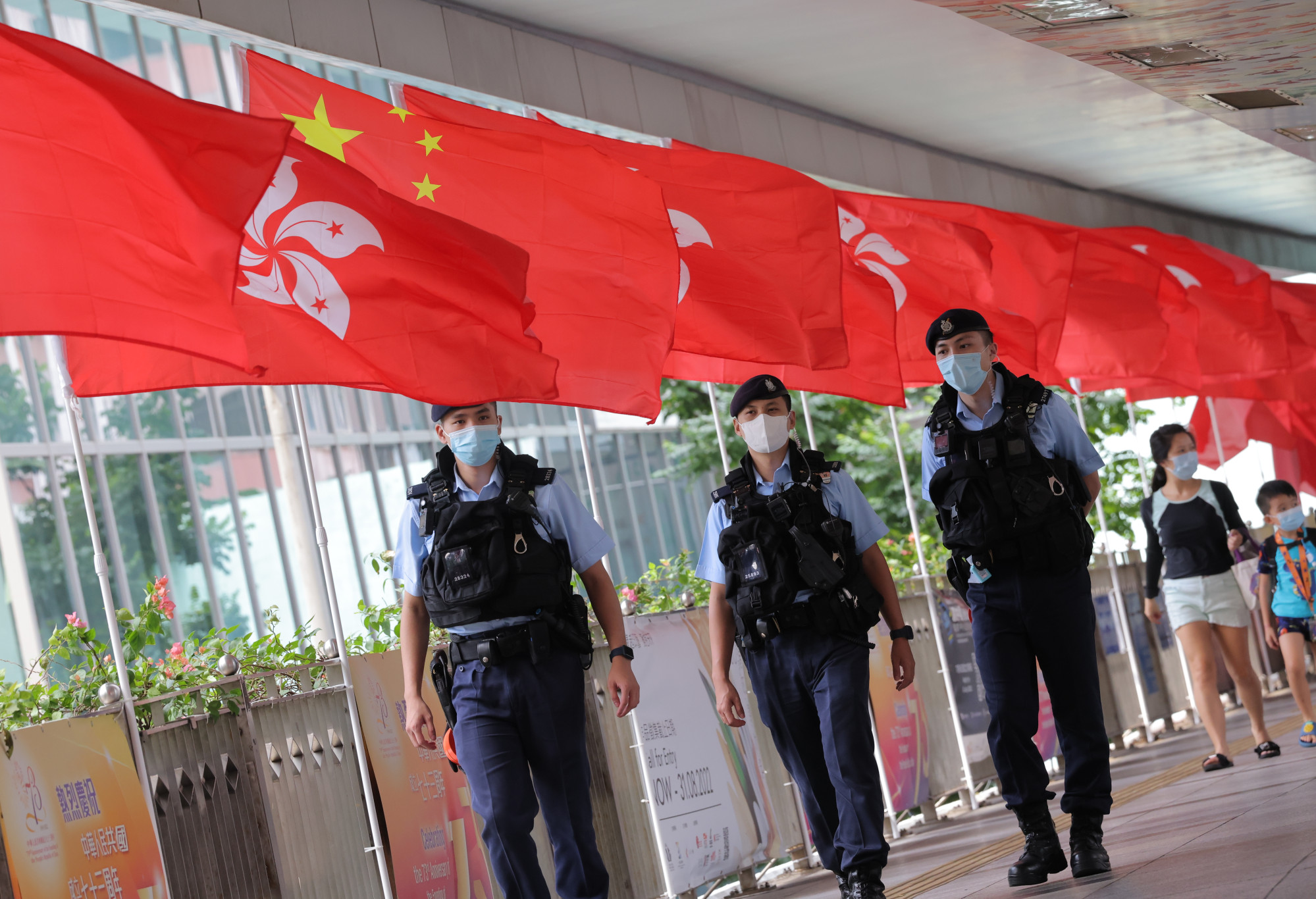
Fewer Hong Kong teachers left profession last school year, HK$10.1 billion withdrawn from retirement funds
- In 2022-23 school year, 3,334 teachers from both subsidised and grant schools left their roles, accounting for 6 per cent overall decline compared with previous year
- City still needs to ‘wait and see’ potential impact of coming domestic national security legislation on teachers’ turnover rate, lawmaker says
The number of teachers and principals leaving their profession in the last academic year amid an emigration wave in Hong Kong has decreased from its peak, with 3,334 from both subsidised and grant schools withdrawing more than HK$10.1 billion (US$1.3 billion) from two major retirement schemes.
In the 2022-23 academic year, 3,238 teachers from subsidised primary and secondary schools and 96 from grant schools, commonly regarded as the most elite institutions in Hong Kong, left their roles, a drop from 3,432 and 119 respectively in 2021-22 and accounting for a 6 per cent overall decline.
The Education Bureau released Subsidised Schools Provident Fund and Grant Schools Provident Fund annual reports on Tuesday, which showed the number of educators who withdrew their money over the last academic year as a result of retirement, resignation and other reasons.
Teachers cashed out HK$9.74 billion and HK$399 million from the two provident funds in the previous academic year, down from HK$10.2 billion and HK$533 million in 2021-22.
Each teacher took out about HK$3 million on average, according to the Post’s calculations.
Before the emigration wave in 2019 and 2020, about 2,000 teachers quit and cashed out around HK$5.2 billion from the two provident funds each year.
An education sector representative said the city still needed to “wait and see” the potential impact of a coming domestic national security law on teachers’ turnover rate.
The number of educators in local schools who left the profession has reached a record high in recent years.
The turnover rates at kindergartens, primary and secondary schools reached 17.6 per cent, 8.5 per cent and 9.8 per cent respectively in the 2022-23 academic year, with the teachers leaving by August 2022.
About 65 per cent of the teachers working in subsidised schools who withdrew funds had resigned, while the rest retired.
The figures mark a significant increase compared with the 2019-20 academic year, before the emigration wave, when less than 40 per cent of educators withdrew their retirement funds due to resignation, with retirement being the main reason.
About 61 per cent of teachers from subsidised schools who cashed out had more than 15 years’ experience, while 28 per cent had 10 years or less. Eleven per cent had worked in the profession for 10 to 15 years.
Lee Yi-ying, chairwoman of the Subsidised Secondary School Council, said that the number of teachers quitting the profession had only come down slightly from 2022.
“It is not a significant drop but at least it has reversed the increasing trend,” she said.
Lee said it was too early to determine whether the domestic national security law, expected to be passed this year, would lead to more teachers resigning.

Teachers quitting over the last few years would not significantly affect the sector as the number of classes had been cut amid a shrinking student population, she said.
The anti-government protests in 2019 and Beijing’s imposition of the national security law the following year have had an impact on the teaching profession.
The 95,000-member Professional Teachers’ Union disbanded, saying it was left with no other option after state media called it a “malignant tumour” that should be removed over its role in the 2019 social unrest.
At least four teachers have been deregistered for life, including one for using “one-sided and biased” materials to talk about political issues, and another for drafting teaching material that included the topic of Hong Kong independence.
Also struck off the register was an educator who gave pupils incorrect details about the first opium war between Britain and China from 1839 to 1842 and one who was convicted of a crime relating to the 2019 protests.
Another 150 teachers who were accused of involvement in the unrest were hit with disciplinary action including reprimands, warnings, advisory letters and verbal reminders.
In 2022, the bureau revised the code of conduct for the profession, stipulating that teachers must actively promote national education and report potential illegal activities or “morally deviant information”, with failure to do so potentially triggering deregistration.
New teachers at publicly funded schools and those promoted at public sector schools have to join study tours in mainland China starting from this academic year.
Education authorities said teachers would be offered more study opportunities across the border to learn about the development of the country to strengthen their ability to cultivate students’ sense of national identity.

